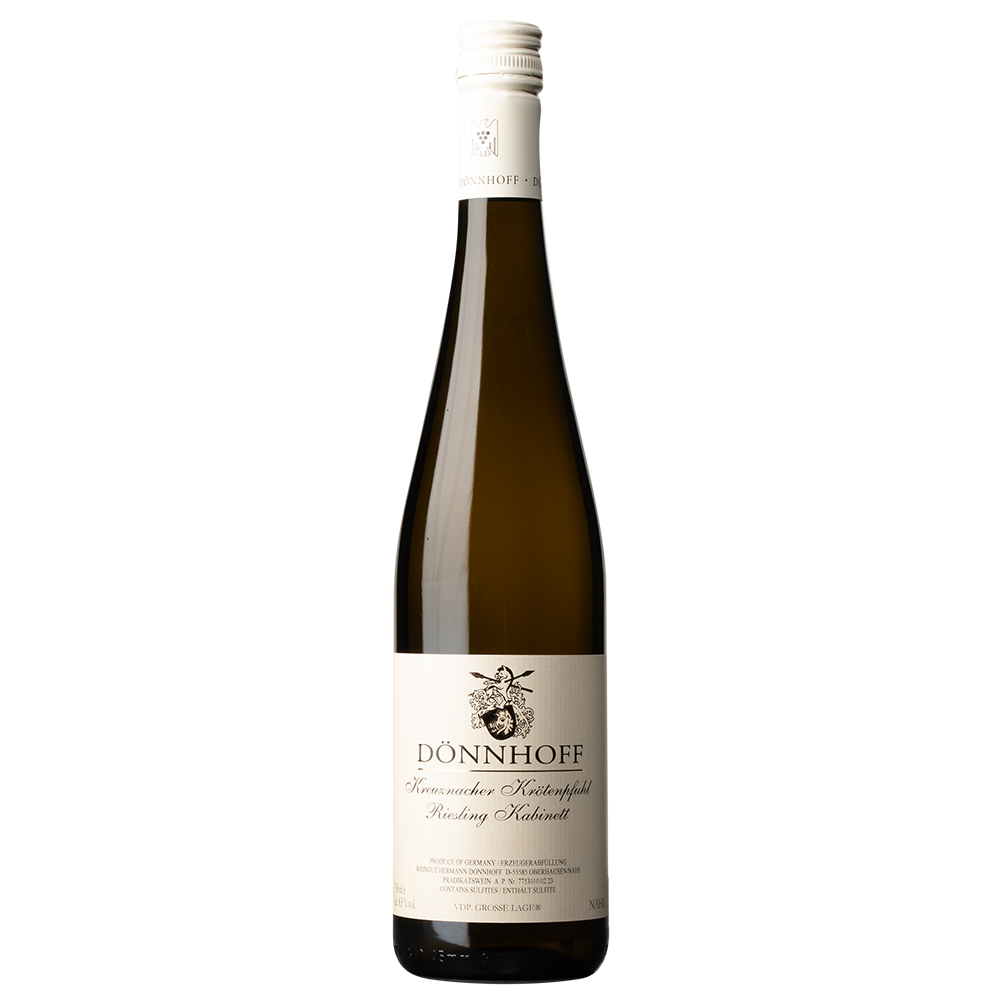Dönnhoff Riesling Kabinett Hreuznacher Krötenpfuhl 2022
Dönnhoff Riesling Kabinett Hreuznacher Krötenpfuhl 2022 - 2022 is backordered and will ship as soon as it is back in stock.
92 points James Suckling
The loess clay soil on the Krötenpfuhl is particularly rich in small quartzite pebbles. Due to its southern exposure, the stony soil heats up very quickly and is also an excellent water reservoir. The grapes remain small due to the stony soil, they have a particularly fine aroma and a spicy acidity.
The German winemaking tradition is long and illustrious, dating back to 800 AD. And for a country a little smaller than Montana, Germany produces and consumes a huge amount of wine (it is the seventh largest producer and sixth largest consumer).
Germany is situated at the northernmost latitude where grapes can ripen; the winters are cold and the growing season is short, all of them, in fact, almost identical to those in the Finger Lakes region of New York. Most of its wine regions are located in central and southwestern Germany. The most significant are Rheingau, Rheinhessen, Rheinpfalz, Mosel-Saar-Ruwer, Nahe, Franken and Baden.
The Riesling grape is queen in Germany, although it represents only 20% of total plantings: Müller-Thurgau (a Riesling-Silvaner cross) has the largest quantity, followed by the red grapes Spätburgunder (Pinot Noir) and Dornfelder. In good years and under the care of master winemakers, Riesling produces one of the greatest white wines in the world, with a perfect balance between sugar and acidity, exquisite fruit and fragrance and considerable aging potential.
Country: Germany
Region: Nahe
Type: White
Vendor: Weingut Hermann Dönnhoff
Winemaker: Owner Cantina Ettore Germano
Castes: Riesling
Alcoholic Content: 9%



